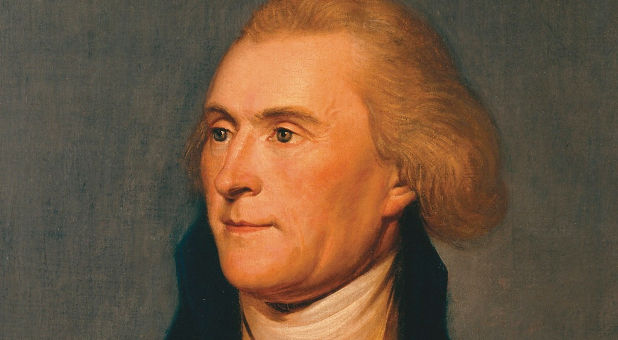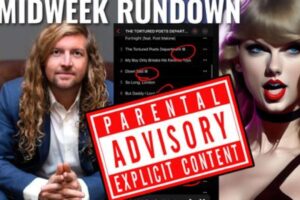Thursday’s commemoration of Religious Freedom Day is important because of what a state legislature did in the early republic. This day in 1786 saw the final passage of the Virginia Statute for Religious Freedom. The bill had worldwide influence. From that time to this, it represents the height of Enlightenment thinking on the crucial role of religious liberty as the solid foundation of a free state.
Thomas Jefferson had first introduced the bill in the Virginia General Assembly in 1779. But the Commonwealth of Virginia was then in the throes of the War of Independence, and British invaders were threatening the state. Action was delayed on this measure until 1785 when Jefferson’s friend and closest political ally, James Madison, skillfully moved the measure through the legislature.
Reporting by letter to Jefferson, who was by this time America’s Minister to France, Madison said—in his quaint 18th century spelling—that it would “add to the lustre of our country.” Jefferson fully agreed and delightedly had the statute translated into French for full distribution on the continent of Europe. The influence of this document spread far and wide.
Jefferson had offered this bill as a way of establishing religious freedom. We need better to appreciate what was meant by that word. In every civilized country during the time of Jefferson and Madison, parliaments and royal courts established the country’s religion.
The “established” Church of England was the only church legally recognized throughout the British Empire and the only one supported by taxes. The best that dissenter Protestants, Catholics and Jews could hope for in England was toleration.
Toleration meant that you could practice your religion, mostly in private, without harassment from royal authorities. Public celebration of the Catholic Mass was illegal in England. Catholics, Jews and dissenting Protestants were ineligible to vote, to hold office or even to serve as a commissioned officer in the Army or the Royal Navy. A religious test was required. Those who were unwilling to pledge even a nominal allegiance to the King’s Church of England were disqualified.
France, our ally in the Revolution, was no better. There, the Catholic Church was established and Protestants and Jews had no civil rights. Holland was perhaps the most enlightened country in Europe, but even for the liberal Dutch, toleration was the guiding principle.
When the great patriot George Mason drafted Virginia’s Declaration of Rights during the Revolution, he first included in it language supporting the broadest “toleration” for all religions. Young James Madison, in his modest and self-effacing way, had persuaded Mason instead to use the phrase “free exercise of religion.” It was Mason’s document that Jefferson used as a reference in writing the American Declaration of Independence.
Madison had no stronger ally in the fight for the Virginia Statute of Religious Freedom thanElder John Leland, a leader of the Old Dominion’s Baptists. These evangelical Protestants had been brutally mistreated under the colonial government of Virginia. Their refusal to tell Church of England clerics where they would preach and to whom they would preach landed a number of Baptist preachers in jail.
In establishing religious freedom for the first time anywhere in the world, the Virginia Statute said that our worship of our Creator was a matter between us and our God. It said we had a duty to worship but the manner and means of that worship were a recognized right of conscience. It freed citizens from paying taxes to support churches they did not attend and doctrines they did not believe. None of the peoples’ rights as citizens would be infringed because of their membership in a particular church body, synagogue, or other “religious society.”
Finally, the Virginia Statute stated in emphatic terms that it recognized the power of succeeding legislatures to amend or repeal portions of the statute. The authors nonetheless asserted that should any part of the Virginia Statute be diluted or repealed, it would be a violation of a fundamental human right.
The importance of the Virginia Statute for Religious Freedom cannot be overestimated. Its spirit breathes in the First Amendment to the U.S. Constitution—also a handiwork of Madison. In the 19th century, millions of European immigrants would be drawn to our shores in the knowledge that in America, their faith would be respected and their right to free exercise of religion protected.
“Here lies Thomas Jefferson, author of the American Declaration of Independence and the Virginia Statute of Religious Freedom, and father of the University of Virginia,” reads the epitaph on the Founder’s grave marker. He wrote it himself. Modestly, he added no word about two terms as president, or a long string of offices and titles conferred upon him. Those were gifts of the people to me, he explained, but these were my gifts to them.
Today, America’s religious freedom is in the gravest danger since 1786. The HHS mandate will force millions of us to aid in the destruction of the inalienable right to life. It violates our consciences and threatens our free exercise of religion.
Our own State Department, forgetting the legacy of two of our ablest secretaries of state—Jefferson and Madison—has pressured constitution writers in Iraq and Afghanistan to establish Islamist states in which the rights of religious minorities are nowhere respected nor are their lives secure. No wonder our efforts in those strife-torn countries have come to naught.
“There’s nothing new under the sun,” said President Harry Truman, “just history we haven’t learned yet.” His words should serve as a warning and a spur to his successor in the White House and the diplomats at State. Even if they have not learned our history, we must remember it.
Bob Morrison is a senior fellow for Policy Studies at the Family Research Council.
See an error in this article?
To contact us or to submit an article






















